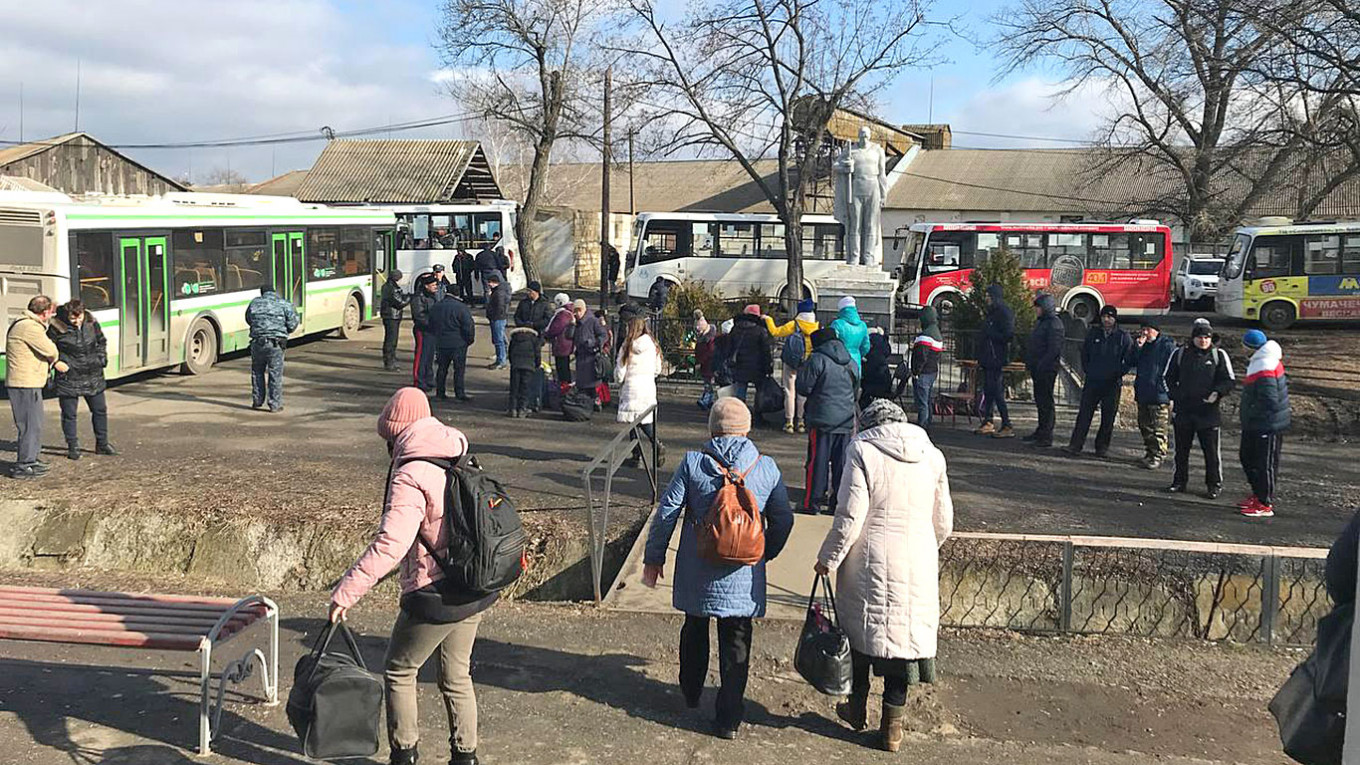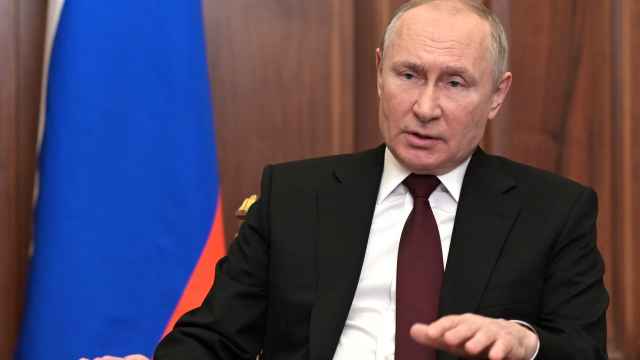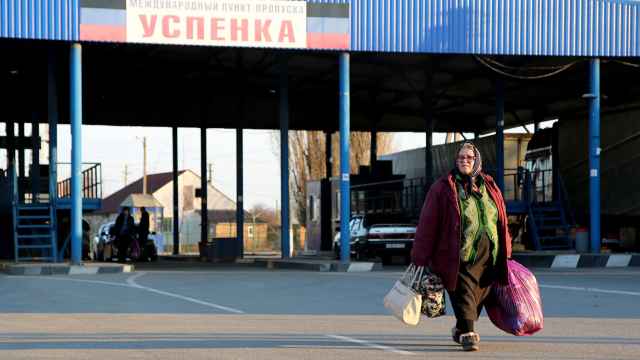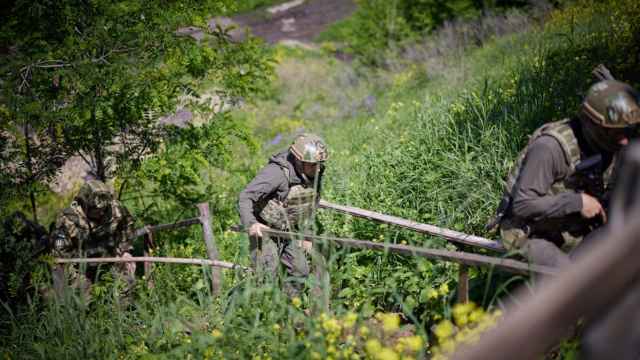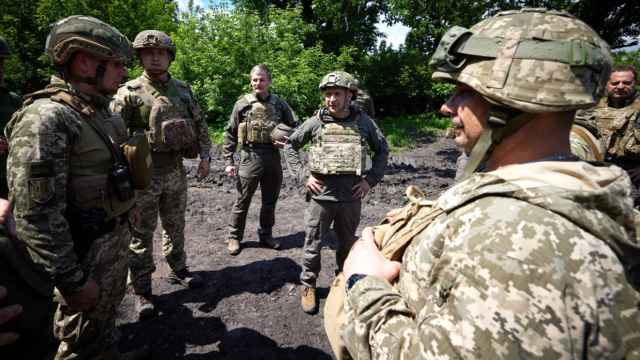AVILO-USPENKA, Russia-Ukraine border — In the early hours of Sunday morning, Irina Alexandrovna made the decision to flee her native Donetsk in pro-Russian separatist-held Eastern Ukraine.
“We have no idea what’s going on in Donetsk,” said the sixty-something-year-old pensioner, who gave only her name and patronymic when interviewed by The Moscow Times in a layby just short of the border on the road to the Russian city of Rostov-on-Don.
“It started to get very loud, lots of explosions,” said Irina, who with her husband Viktor now plans to join relatives in Voronezh, a Russian city around 350 kilometers from the border.
“If it hadn’t been for all the noise, we would have stayed.”
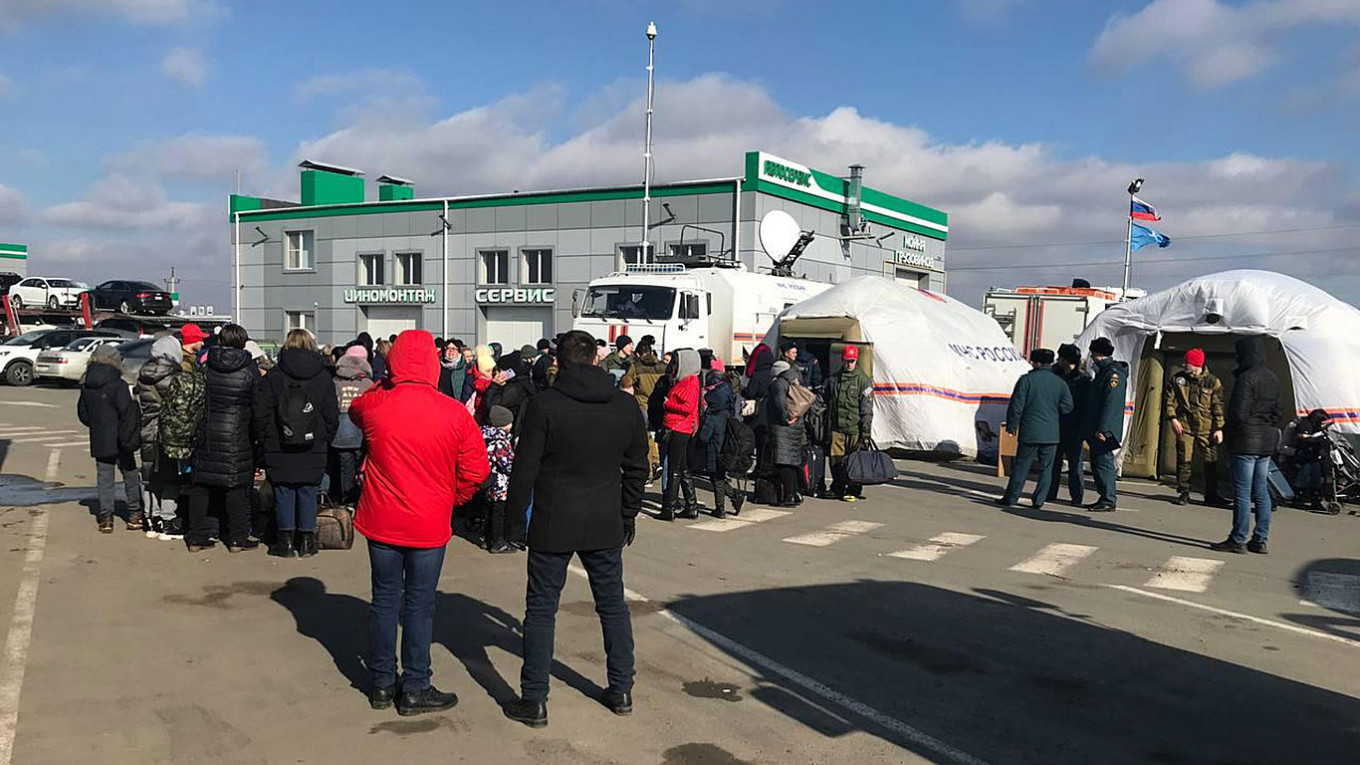
Authorities in the breakaway Donetsk and Luhansk People’s Republics ordered women, children and the elderly to evacuate on Friday amid unsubstantiated claims that a Ukrainian onslaught was imminent. By Monday, Rostov regional authorities said that around 60,000 residents of the separatist Donbas republics had fled over the border into Russia.
Though far short of the 900,000 evacuees initially mooted by the separatist authorities, the exodus from Donetsk and Luhansk has left its mark on Russia’s neighboring Rostov region.
All along the 95-kilometer route from the regional hub of Rostov to the Uspenka border crossing, there were telltale signs of the drama unfolding across the frontier.
The thin strip of asphalt that cuts across the steppe was dotted with impromptu roadblocks set up by traffic police checking vehicles heading into Russia.
Around half of the cars on the road to Rostov bore either Ukrainian license plates, or those emblazoned with the black-blue-red tricolor of the unrecognized Donetsk People’s Republic.
And on more than one occasion, large convoys of dull-green military lorries and armored personnel carriers trundled along the highway, heading for Ukraine.
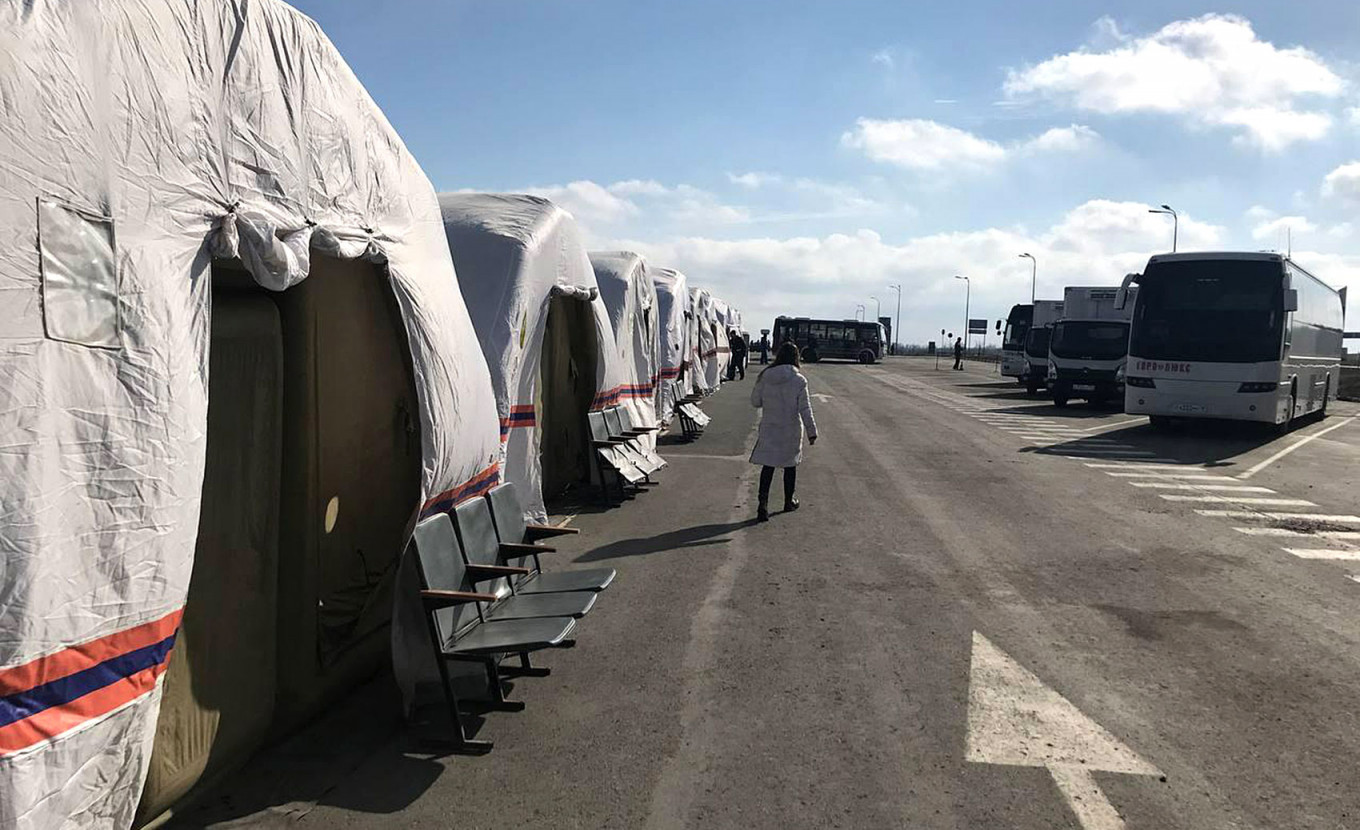
At the Uspenka crossing itself — a shabby collection of low-slung cafes, shops and motels strung out along a ridge that straddles the border — there was little sign of the hundreds of thousands of refugees reportedly being evacuated from the Donbas.
Though Russia’s Emergencies Ministry had set up around 30 disaster relief tents in the parking lot in front of the border post, and massed dozens of buses for rapid evacuation, they seemed in little demand on Sunday.
For much of the morning, emergency workers and taxi drivers touting for refugee clients outnumbered actual evacuees.
At the barred steel gate that marks the border, uniformed activists from the All-Russian People’s Front, a pro-Putin political organization, were on hand to help the elderly with bags, and hand out candy to the children.
With men of military age barred from leaving the Donetsk and Luhansk People’s Republics, the evacuees — mostly the very young and the very old — trudged over the border in twos and threes, many clutching holdalls and reusable plastic bags crammed with hastily gathered possessions.
Every so often, a busload of evacuees would arrive, briefly filling up the parking lot, before being loaded into buses by Russian emergency workers and driven to temporary accommodation in the nearby city of Taganrog.
Many were reportedly housed in a Taganrog sports hall, before being placed on trains to other parts of Russia.
Others, those with friends and family in Rostov or other nearby cities, crowded in the muddy square outside the tiny, run-down train station in Avilo-Uspenka village, a few meters short of the border, before beginning their grueling journeys onwards.
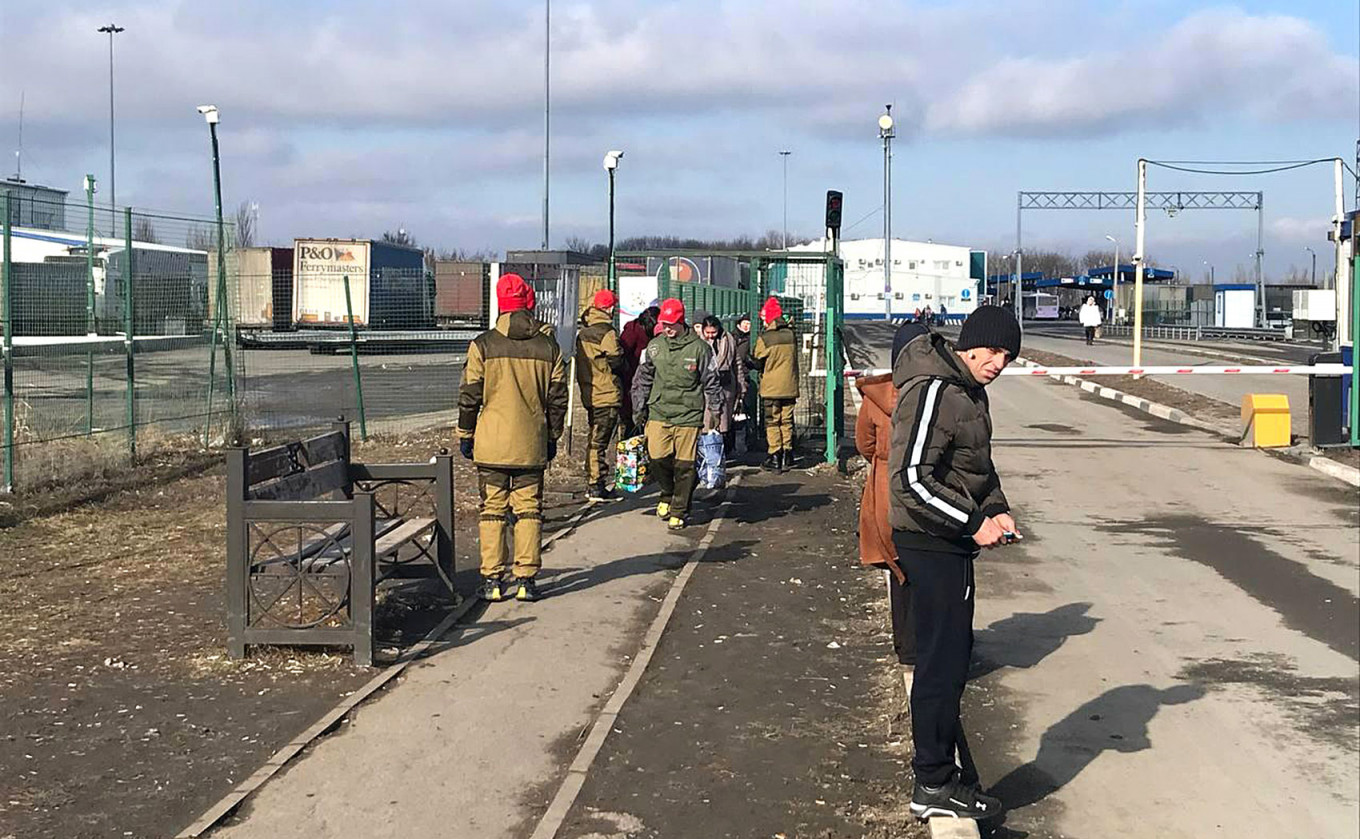
Some of the refugees interviewed by the Moscow Times at the border crossing appeared confused about why they had been evacuated in the first place.
“To be honest, I can’t say very much about what’s going on in the Donbas,” said seventeen-year-old Stanislav Vakarchuk, a native of the mining town of Shakhtarsk in Donetsk region, who was meeting his father Ivan, who works in Russia, at the Uspenka checkpoint.
“They say the Ukrainian army started shelling, but in our town everything was calm,” he said.
Others said they would wait at the checkpoint until given the all clear to return, rather than continue on into Russia.
Pensioner Georgy Ivanovich, 63, who gave only his name and patronymic, said that he and his wife were staying in a small motel at the border crossing, hoping to go back to Donetsk at the first opportunity.
“I don’t know what the situation is in Donetsk, but I don’t want to stay here,” he said. “There’s nothing for us in Rostov.”
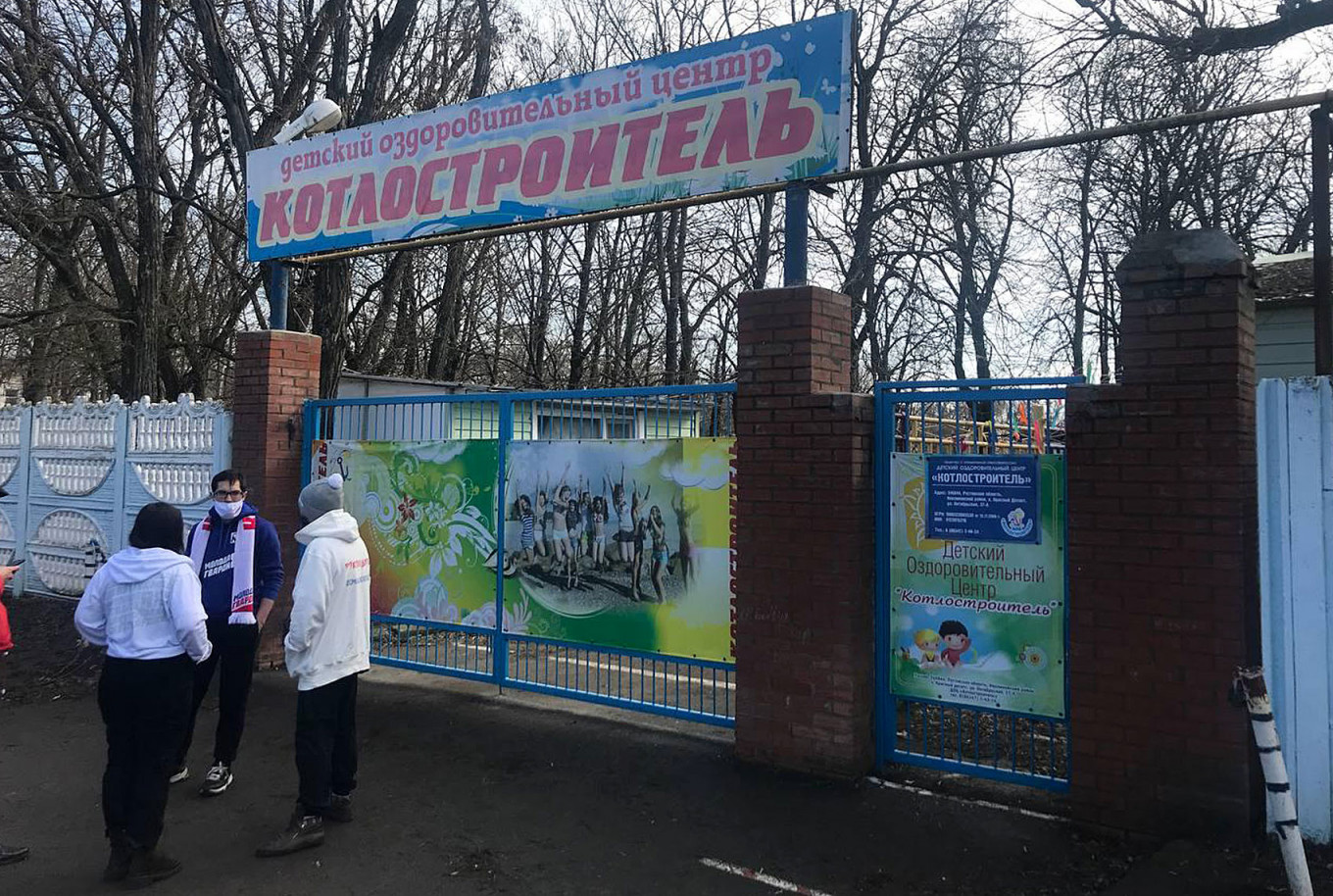
In the coastal village of Krasny Desant, 100 kilometers to the south, evacuees were being housed in local children’s camps and sanatoriums.
When The Moscow Times visited, police had sealed off the evacuees’ accommodation and expelled journalists from the scene.
Outside one sanatorium, a group of activists from the Young Guard of United Russia, the pro-Kremlin ruling party’s youth wing, were waiting around for instructions, having flown in from across Russia.
“We were brought in to help with the evacuees,” said one activist decked out in a United Russia branded t-shirt, baseball cap and scarf who said she had just flown in from the Moscow region but declined to give her name.
“But now we’re just waiting for someone to tell us what to do,” she shrugged.
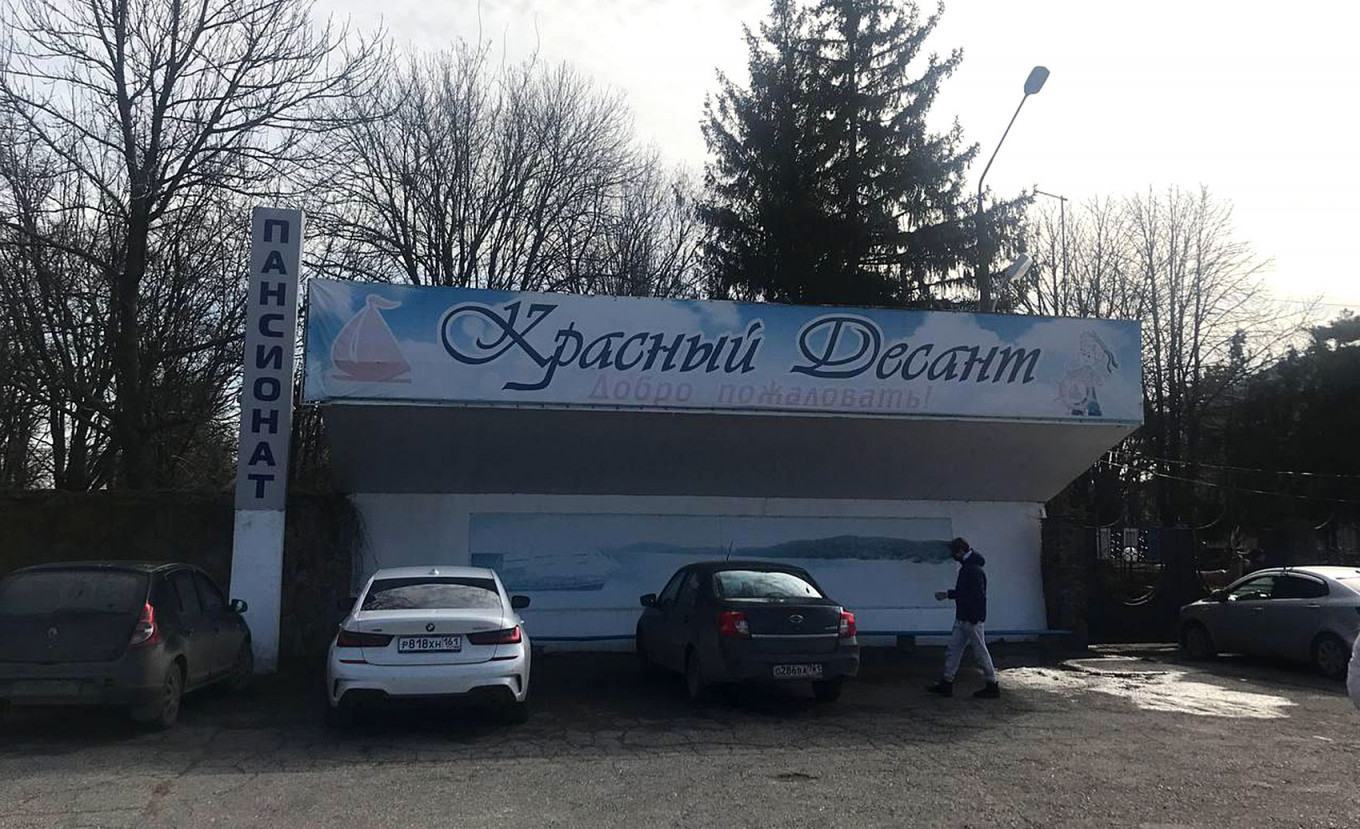
A Message from The Moscow Times:
Dear readers,
We are facing unprecedented challenges. Russia's Prosecutor General's Office has designated The Moscow Times as an "undesirable" organization, criminalizing our work and putting our staff at risk of prosecution. This follows our earlier unjust labeling as a "foreign agent."
These actions are direct attempts to silence independent journalism in Russia. The authorities claim our work "discredits the decisions of the Russian leadership." We see things differently: we strive to provide accurate, unbiased reporting on Russia.
We, the journalists of The Moscow Times, refuse to be silenced. But to continue our work, we need your help.
Your support, no matter how small, makes a world of difference. If you can, please support us monthly starting from just $2. It's quick to set up, and every contribution makes a significant impact.
By supporting The Moscow Times, you're defending open, independent journalism in the face of repression. Thank you for standing with us.
Remind me later.



